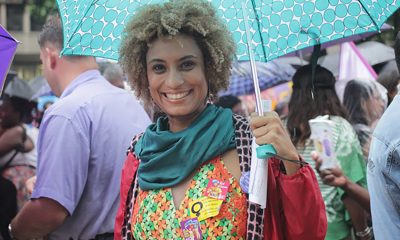South America
The gay man who shook Brazilian society and sports
Gilberto Nogueira shares his dream of inclusion

RECIFE, Brazil — An unexpected trailblazer shook Brazilian society in 2021 and caused significant advancements of LGBTQ rights in historically conservative groups.
Gilberto Nogueira, a reality show superstar, brought to prime-time television what most would think of as contradictions: A sexually liberal person with strong religious convictions; a high-level academic who speaks the language of the people; and, most strikingly, an effeminate and proudly gay man who is also a soccer fan.
Nogueira, or “Gil do Vigor,” which roughly means “Striving Gil” in Portuguese, became a TV phenomenon by almost winning “Big Brother Brazil”, one of the most popular shows in Brazilian television. His unapologetic character struck an enormous fan base that includes some of the most famous Brazilian soccer players and sports journalists. In a matter of weeks, Nogueira managed to build an unexpected alliance of LGBTQ people and sports fans to support him. This would produce lasting change, although it would not come without controversy.
“Dialogue is a great and necessary bridge to long-term changes, which leads us to reflection, reassessment of attitudes, conscious self-assessment, practical actions and much more,” Nogueira told the Los Angeles Blade from California, where he is now pursuing his PhD in economics at the University of California-Davis.
The roots of the fight for diversity in Brazilian soccer can be traced to the 1970s, when a group called “Torcida Coligay” decided to defy homophobes and the then-ruling military dictatorship by bringing together queer fans of the soccer club Grêmio. More recently, tangible outcomes have been achieved.
Since Brazil’s Supreme Court criminalized LGBTQ-phobic violence in 2019, fines and legal sanctions have been applied by sports authorities onto clubs whose supporters chanted homophobic slurs. Drawing from the heritage of Torcida Coligay, the collective “Canarinhos LGBT” has been pressuring restlessly for the enforcement of these measures.
However, as an important part of the Brazilian cultural identity, sports have also entered the cultural war that has dominated Brazil’s public life. Nogueira himself has been in the middle of a battle between two visions of what soccer should be. A fan of the club Sport Recife, Gil was invited by the club for a visit to the team’s stadium. The day after, an audio leak revealed homophobic slurs by one of the club’s advisors, sparking outrage among Nogueira’s supporters and media figures and reaching national headlines. Before the episode, it would be unimaginable to have soccer players showing support for LGBTQ Rights.
Since then, the club’s executive direction, younger and more diverse, and its governing council, older and male-dominated, started a civil war around the expulsion of the advisors. Possibly avoiding further backlash, Nogueira has not been outspoken about this topic in Brazilian media. Asked to comment on this article, he broke his silence.
“Conservatism, patriarchy and homophobia are issues that, in the sports universe, are potentialized because it is an environment where these key themes were rarely brought into the agenda, which is completely inconsistent, as sports are synonymous with inclusion. But the question is: Inclusion for whom?” Nogueira said.
“I see that we are lagging behind and there is little willingness to advance in these debates, and even less will to introduce practices that can foster the debate on gender identities, gender expression, sexual orientation, among others. I also realize that we lack dialogue, and we know that talking about the plurality of life is respecting it, inserting it, sustaining it in such an oppressive environment.” he concluded.
The battle for inclusion in Brazilian sports occurs in the midst of a highly hostile political debate.
About a month ago, Mauricio Souza, a famous volleyball player, was fired from his club after anti-LGBTQ comments on social media. Immediately, he became a symbol of Brazil’s far right, multiplying his followers and gaining support from President Jair Bolsonaro. Souza is now expected to run for the Congress in Bolsonaro’s party.
In this context, Nogueira ‘s contribution for diversity in sports becomes even more remarkable. His persona — evangelical, gay, academic, raised in poverty — defies the typical divide of the deeply polarized Brazilian society. Asked what he would say to other LGBTQ persons living in highly conservative environments such as the church and the soccer stadium, Nogueira states the answer is within.
“There are always answers within ourselves,” he said. “While everyone has the right to speak when, how and if they want to about their orientation or gender identity, genuinely belonging to ourselves is something we will question ourselves throughout our lives”.
Another remarkable characteristic of Nogueira is his firm belief in his dreams. Even having won national recognition, 15 million followers on Instagram and millions of dollars in advertisement, he chose to continue his life-long plan to pursue a PhD at UC Davis. This does not drive him away from his fight for inclusion.
“I intend to conduct relevant research that has a social impact directly related to minorities — in this case, the LGBTQIA+ community and racial issues — so that we can discuss and show that it is important to have diversity in all sectors of the country, and that this will not only bring more equality, but it will also bring development,” he said.
From California, Nogueira has his own segment in a popular TV show, explaining complex economic concepts to common people. This highlights his vision for the future of Brazil.
“I intend to use my theoretical knowledge as an economist … to show that we need to consolidate ourselves as a country that is diverse, respectful, not homophobic, not racist, because otherwise, we pay the price as human beings, but also as a country, as a whole,” he said. Nogueira’s activism and brilliance has shown that Brazilian sports culture is on an inclusive path, but there is still a long way to go. There are very few high-profile athletes who are openly LGBTQ, and in men’s soccer, Brazil’s most popular sport, there are none.
However, Nogueira’s impact, as Michael Sam and Megan Rapinoe in the U.S., is proof that society is changing and this includes formerly homophobic milieus, as the sports arenas.
Egerton Neto is the international coordinator at Aliança Nacional LGBTI+, a Brazilian LGBTQ rights group, and a master candidate at the London School of Economics. Caio Leite is a political scientist.
South America
Convicted killer in Daniel Zamudio murder in Chile seeks parole
Zamudio’s death in March 2012 sparked outrage across Chile & prompted lawmakers to pass a hate crimes & anti-discrimination bill
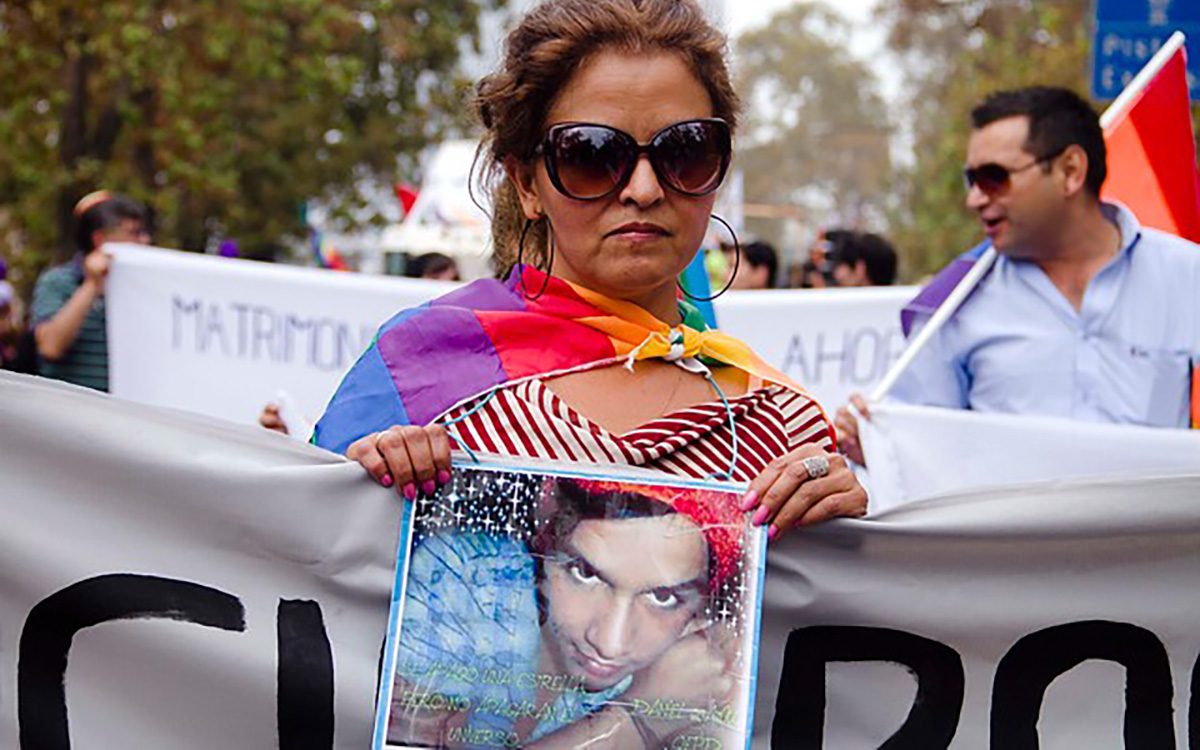
By Esteban Rioseco | SANTIAGO, Chile — One of the four men convicted of murdering a young gay man in the Chilean capital in 2012 is seeking parole.
Raúl López Fuentes in 2013 received a 15-year prison sentence after he was convicted of killing Daniel Zamudio.
Zamudio was a young Chilean man who became a symbol of the fight against homophobic violence in his country and around the world after López and three other young men with alleged ties to a neo-Nazi group beat him for several hours in Santiago’s San Borja Park on March 2, 2012. Zamudio succumbed to his injuries a few weeks later.
The attack sparked widespread outage in Chile and prompted a debate over homophobia in the country that highlighted the absence of an anti-discrimination law. Lawmakers in the months after Zamudio’s murder passed a law that bears Zamudio’s name.
Patricio Ahumada received a life sentence, while López and Alejandro Angulo Tapia are serving 15 years in prison. Fabían Mora Mora received a 7-year prison sentence.
López has asked the Seventh Santiago Guarantee Court to serve the last three years of his sentence on parole. Zamudio’s family and Jaime Silva, their lawyer who works with the Movement for Homosexual Integration and Liberation, oppose the request.
Movilh represented Zamudio’s family after his murder.
Zamudio’s mother, Jacqueline Vera, during an exclusive interview with the Washington Blade said López’s petition “provoked all the anguish, all the commotion of his time.”
“It was very cruel because in fact two days before we were at Daniel’s grave, where it was 12 years since his death and the beating,” said Vera. “He really does not deserve it.”
“We have gone through very difficult moments,” she added.
The mother, who later created a foundation to eradicate discrimination in Chile, was emphatic in indicating that she and her family “do not accept the release of this guy because he is a danger to society and a danger to ourselves.”
“At the last hearing where they were sentenced, they told us that we are going to remember them when they get out,” said Vera. “They threatened us with death. There is a video circulating on social networks where they were in front of me and they laughed and made fun of me. They told me that I remembered that I had three more children.”
Regarding the possibility that the Chilean justice system will allow López to serve the remaining three years of his sentence on parole, Vera said “with the benefits here in Chile, which is like a revolving door where murderers come and go, it can happen.”
“In any case, I don’t pretend, I don’t accept and I don’t want (López) to get out, I don’t want (López) to get out there,” she said. “We are fighting for him not to get out there because I don’t want him to get out there. And for me it is not like that, they have to serve the sentence as it stands.”
LGBTQ Chileans have secured additional rights since the Zamudio Law took effect. These include marriage equality and protections for transgender people. Advocacy groups, however, maintain lawmakers should improve the Zamudio Law.
“We are advocating for it to be a firmer law, with more strength and more condemnation,” said Vera.
When asked by the Washington Blade about what she would like to see improved, she indicated “the law should be for all these criminals with life imprisonment.”
Related:
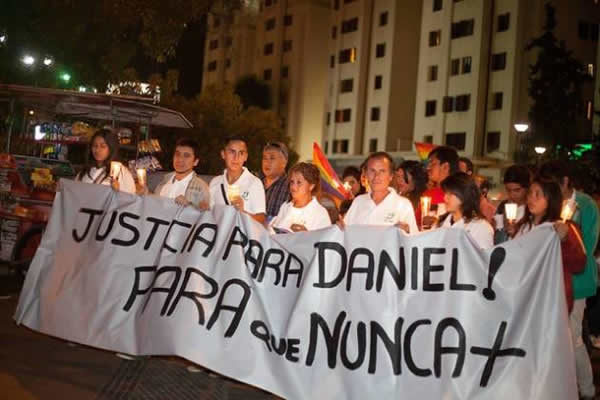
Link: Trial of gay Chilean’s alleged killers begins
******************************************************************************************
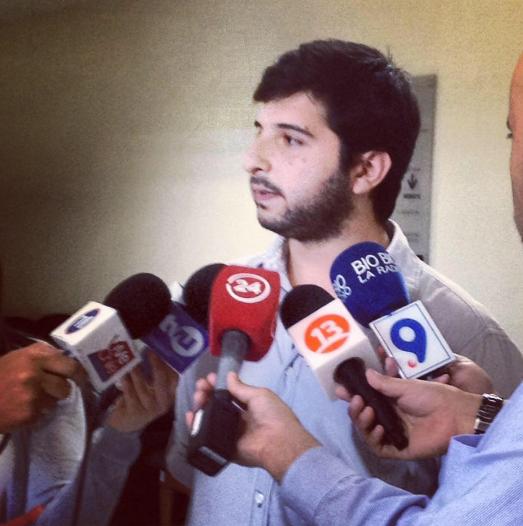
Esteban Rioseco is a Chilean digital communicator, LGBT rights activist and politician. He was spokesperson and executive president of the Homosexual Integration and Liberation Movement (Movilh). He is currently a Latin American correspondent for the Washington Blade.
On Oct. 22, 2015, together with Vicente Medel, he celebrated the first gay civil union in Chile in the province of Concepción.
South America
Argentine president bans state institutions from using inclusive language
Activists condemn Javier Milei’s anti-LGBTQ policies
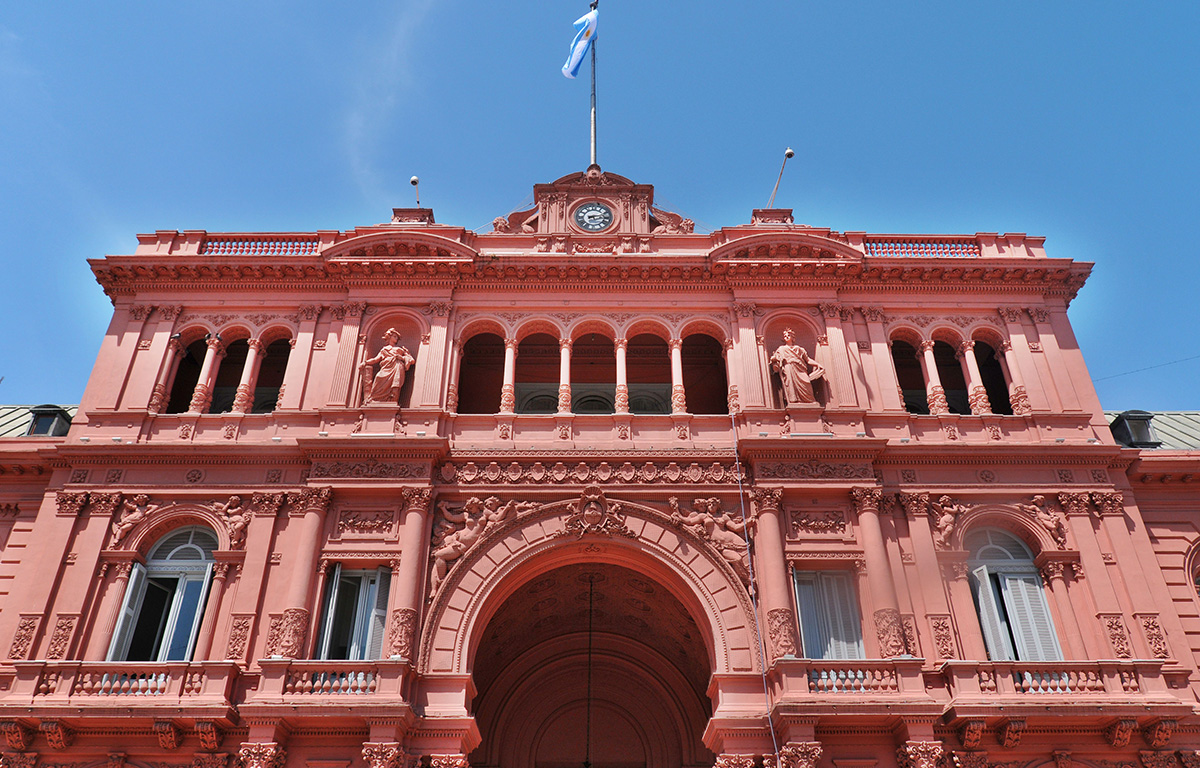
By Esteban Rioseco | BUENOS AIRES, Argentina — In a move that has generated concern and criticism throughout the country, Argentine President Javier Milei has announced government institutions can no longer use inclusive language and gender-specific references in their public policies.
This decision comes on top of other controversial measures, such as the closure of the Women, Gender and Diversity Ministry, and an announcement to shutter the country’s National Institute against Discrimination, Xenophobia and Racism.
Former Diversity Undersecretary Alba Rueda, a Transgender woman who was the country’s special envoy for LGBTQ+ issues under former President Alberto Fernández’s government, and gay Congressman Esteban Paulón, in exclusive interviews with the Washington Blade discussed the impact of Milei’s announcement and the impact it will have on Argentine society in terms of human rights and protections for queer people.
“The State had been using the gender perspective and inclusive language to make visible the presence of women in key roles and to recognize nonbinary identities,” Rueda said. “This measure not only erases those advances, but also excludes people who are already recognized by the State in their nonbinary gender identities.”
Rueda noted Congress more than a decade ago “passed the gender identity law, which states in its first article that the State will respect the gender identity of all persons. After changes were made in the structure of the State to be able to generate identity documents, a series of court rulings that recognize nonbinary people in their nonbinary identity arose in 2016, and this (and) that remained unresolved during the Macrista government without recognizing the identity of nonbinary people.”
She pointed out Fernández’s government in 2021 issued Decree 746, which recognized “people with nonbinary identities, gender fluid and those who avoid naming their gender before the State.”
“The State already recognizes this citizenship and here comes that the prohibition of inclusive language excludes in the way of naming people who are already recognized by the State and that effectively the recognition of their gender identity is the condition of not being binary,” said Rueda. “So, the decree is in force, the law is in force, there are nonbinary people with their documents, but who today are not being named in all state documents.”
Paulón said the prohibition of inclusive language is a gesture of violence towards LGBTQ+ communities.
“Inclusive language has given entity and identity to an important part of the Argentine population,” he said. “This measure represents an act of harassment and violence towards those who identify with inclusive language, including the queer and LGBTQ+ collective.”
“Language is a social and cultural construction, and in Argentina today inclusive language represents and has given entity and identity to an important segment of the population and to a series of social collectives,” added Paulón. “Therefore, something that is not created by decree can hardly be eliminated by decree.”
The congressman told the Blade that Milei’s government announcement was “something that was clearly going to happen.”
“I don’t see the government campaigning in inclusive language or celebrating diversity,” said Paulón.
Milei’s decision has generated intense debate in Argentina, with critics arguing these measures represent a step backwards in the protection of human rights and an attack on diversity and inclusion. Milei’s supporters, on the other hand, defend these measures as part of an effort to promote conservative policies and reinforce national identity.
“It is very serious because it limits the exercise of citizenship and affects the nonbinary population, women and the trans population that is not recognized within the gender binarism,” said Rueda.
She noted Milei during his presidential campaign raised these issues, and has decided to implement policies that harm women and LGBTQ+ people.
“This is the gravity that is lived today in Argentina, that the Argentine head of state puts in confrontation and reduction of rights to women and LGBTIQ+ people,” Rueda added.
This ban on inclusive language and gender-specific policies has been announced against the context of increased political and social polarization in Argentina. With inflation at alarming levels and an economy in crisis, Milei’s government has sought to consolidate its base by adopting controversial measures that have generated division and unrest in Argentine society.
“That is the institutional and democratic gravity today in Argentina, that the head of state attacks and creates internal enemies and that position is accompanied by the media, amplifying a negative message about our communities,” Rueda said. “Of course that translates into social networks, but it also translates into the attacks that we LGBTIQ+ people experience in the public sphere.”
******************************************************************************************

Esteban Rioseco is a Chilean digital communicator, LGBT rights activist and politician. He was spokesperson and executive president of the Homosexual Integration and Liberation Movement (Movilh). He is currently a Latin American correspondent for the Washington Blade.
On Oct. 22, 2015, together with Vicente Medel, he celebrated the first gay civil union in Chile in the province of Concepción.
South America
Argentinian President seeks to dismantle anti-discrimination agency
Critics of Milei’s government argue INADI’s closure is part of a strategy to consolidate power and repress dissent
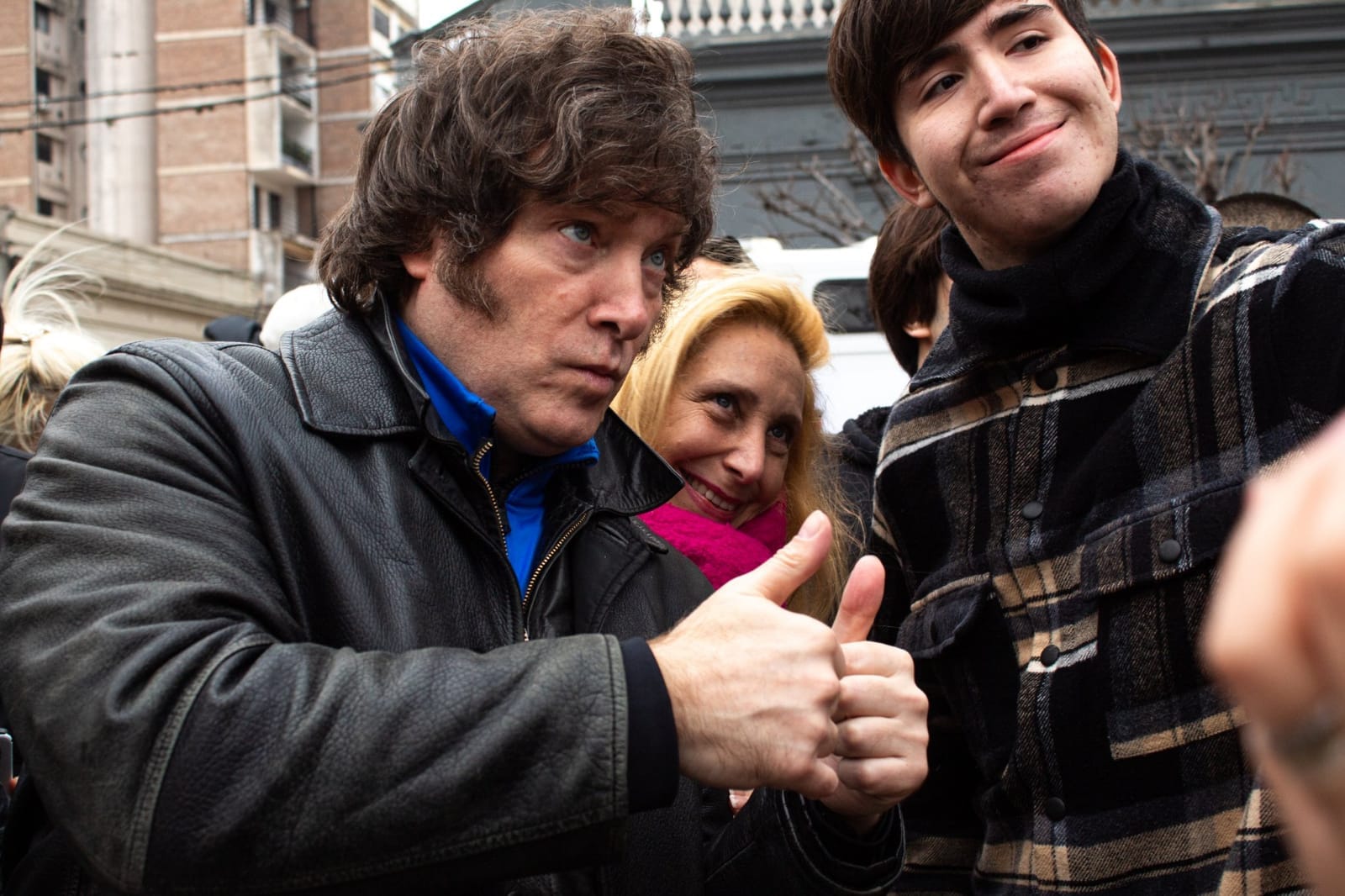
By Esteban Rioseco | BUENOS AIRES, Argentina – Argentinian President Javier Milei’s proposed closure of his country’s National Institute Against Discrimination, Xenophobia and Racism has sparked widespread criticism among LGBTQ activists and human rights defenders.
Alba Rueda, the former Undersecretary of Diversity Policies in the Women, Gender and Diversity Ministry who was also the country’s Special Representative on Sexual Orientation and Gender Identity under Alberto Fernández’s government, and gay Congressman Esteban Paulón in exclusive interviews with the Washington Blade talked about the Feb. 22 announcement’s implications and the impact it will have on Argentine society at a time marked by an acute economic, political and social crisis.
Rueda said INADI’s closure is a serious setback in the fight against discrimination and the advancement of human rights in Argentina.
“INADI is a human rights agency that has been in force in Argentina for almost 30 years, which emerged as a response to the international attacks we suffered,” she pointed out. “This body has been fundamental in the attention of discrimination cases, including strategic litigation such as the (murder) of Diana Sacayán (a prominent transgender rights activist) in 2015.”
Paulón said INADI’s closure is part of a broader policy of harassment towards diversity and state institutions that Milei’s government has carried out.
“INADI, along with the already eliminated Women Ministry, has been fundamental in the defense of the rights of LGBTQ+ and queer people,” said Paulón.
“In practical facts, the government cannot close INADI because INADI has been created by a law and it would require another law to close it,” he added. “Therefore, it has been raised that there is going to be a restructuring of personnel, a readjustment of resources that are going to continue processing complaints, but that they are going to pass to the orbit of the Justice Ministry, where INADI already is, but let’s say, they would pass without the institutionalism and that it would remain as an empty shell until the government achieves the consensus of a law to eliminate.”
Both agreed that INADI’s closure represents a serious setback in the protection of human rights in Argentina and a threat to the most vulnerable groups in society, including LGBTQ people. They also stressed Milei’s government has used this announcement as part of a broader strategy to dismantle democratic institutions and the country’s human rights agenda.
INADI cannot be closed unilaterally, despite the announcement, because a law created it and another statute would be required to dismantle it. There are, however, concerns the government may attempt to dismantle the institution or reduce its operational capacity.
“The decision to close INADI responds to an ideological position,” said Rueda. “They believe that INADI is the policeman of this, the ideological policeman. It is a body that functions autonomously whose president is appointed by the Congress and which also has a board of directors of social organizations.”
Critics of Milei’s government argue INADI’s closure is part of a strategy to consolidate power and repress dissent. They say the government is using the economic crisis as a pretext to implement authoritarian measures that limit civil liberties and weaken democratic institutions.
Milei’s supporters, on the other hand, defend the move as part of a broader effort to reduce public spending and promote liberal economic policies. They argue INADI’s closure is necessary to eliminate waste and corruption in government, and that its impact on human rights and LGBTQ protection is overstated.
“For LGTB people in particular, the closure of INADI would leave us without a place where we could basically receive attention in the face of discrimination,” Rueda pointed out. “And another issue that INADI also did is that it generated public policy recommendations or developed public policies for the prevention and awareness of these changes that have to take place in society.”
“So, not only do we run out of spaces for denunciation, but also of where to change this culture of discrimination, culture of discrimination that are present in the labor market that Milei presents or points out to you, as a success and that this is self-regulated,” she added.
******************************************************************************************

Esteban Rioseco is a Chilean digital communicator, LGBT rights activist and politician. He was spokesperson and executive president of the Homosexual Integration and Liberation Movement (Movilh). He is currently a Latin American correspondent for the Washington Blade newspaper .
On October 22, 2015, together with Vicente Medel, he celebrated the first gay civil union in Chile in the Governorate of Concepción .
South America
Authorities arrest alleged masterminds of Rio councilwoman’s murder
Marielle Franco and her driver killed on March 14, 2018
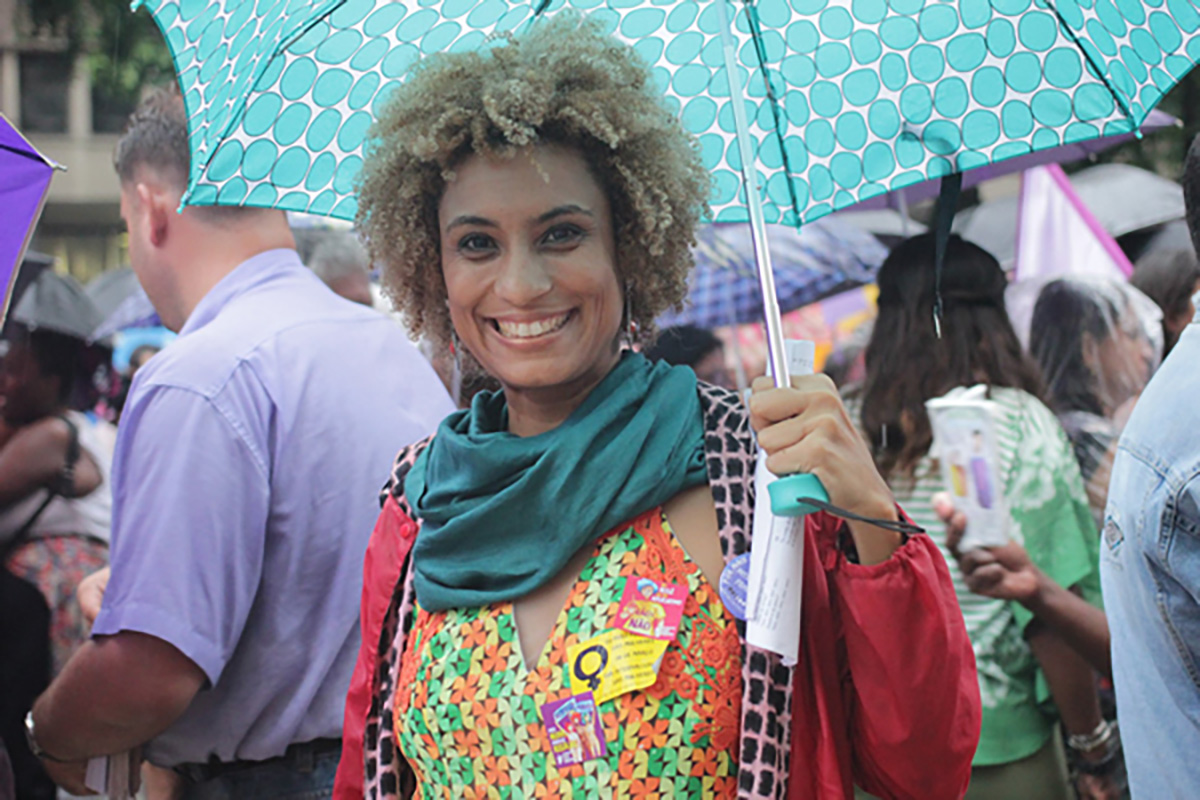
RIO DE JANEIRO — Brazilian authorities on Sunday arrested two people who they say masterminded the 2018 murder of Rio de Janeiro Municipal Councilwoman Marielle Franco and her driver.
The Associated Press reported the country’s federal police arrested Congressman Chiquinho Brazão and his brother, former Rio de Janeiro Legislative Assemblyman Domingos Brazão, who advises the state’s Audits Court. Authorities on Sunday also took into custody former Rio police chief Rivaldo Barbosa and charged him with obstruction of justice.
Authorities say two former fire fighters — Elcio de Queiroz and Ronnie Lessa — shot Franco and Anderson Gomes in Rio’s Lapa neighborhood on March 14, 2018.
Franco, a bisexual woman and single mother of African descent, grew up in Maré, a favela in the northern part of Rio that is close to the city’s international airport. Franco, among other things, was an outspoken critic of police raids in Rio’s favelas that have left hundreds of people dead.
Authorities last July arrested Maxwell Simões Correia, a former firefighter who allegedly hid the guns that De Queiroz and Lessa used to shoot Franco and Gomes. The Brazilian Supreme Court last week approved a plea agreement into which Lessa entered.
The AP reported Federal Justice Minister Ricardo Lewandowski at a press conference told reporters the Brazão brothers have “multiple interests” and Chiquinho Brazão, who was a member of the Rio Municipal Council in 2018, was angry about Franco’s bill that would have zoned land for public housing in the city. The Brazão brothers also have reported ties to militias in the city.
“At this moment we have it very clear who are the perpetrators of this hateful, heinous crime of political nature,” said Lewandowski.
Franco’s widow, Mônica Benício, who was elected to the Rio Municipal Council in 2020, discussed the status of the investigation with the Washington Blade during a March 2022 interview in Rio.
“The struggle for justice to find out who ordered the murder and how high up they were indicates we are still far from knowing,” said Benício.
Franco’s family in a statement said their fight for justice will continue.
“This case reflects the structural impunity in cases of crimes committed by agents or former agents of the State against the lives of human and civil rights defenders, such as Marielle and Anderson Gomes, segments of society that suffer widespread damage to rights in society and have structural difficulty in accessing justice,” it reads.
Domingos Brazão’s lawyer has denied the allegations against his client, saying he “did not know Marielle.” Chiquinho Brazão and Barbosa have also proclaimed their innocence.
The three men, who were arrested in Rio, will be transferred to Brasília, the country’s capital.
South America
Chilean government urged to advance comprehensive sex education bill
Advocacy group sent request to Education Minister Claudio Cataldo
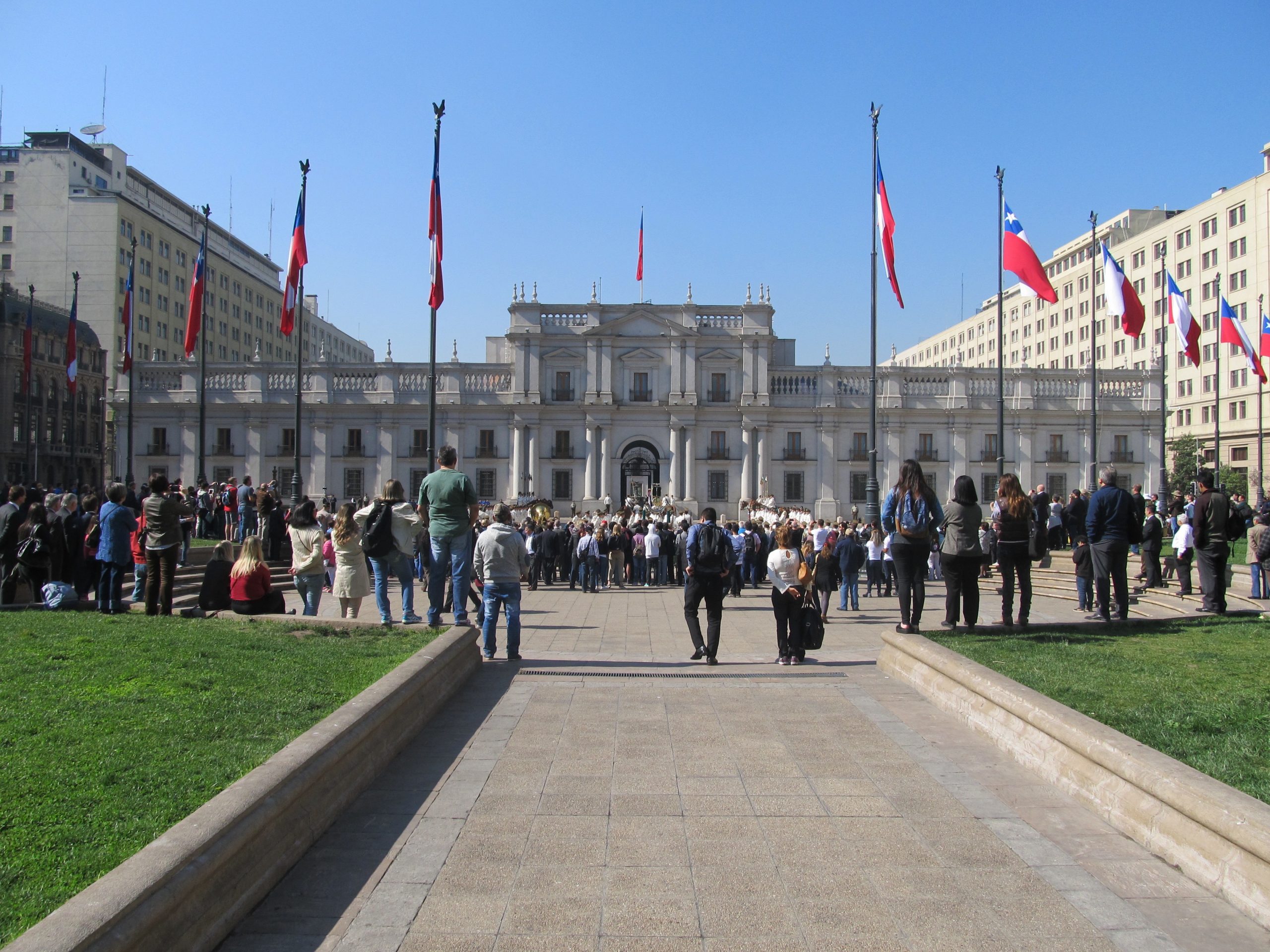
By Esteban Rioseco | SANTIAGO, Chile — A Chilean advocacy group has submitted an urgent request to Education Minister Claudio Cataldo that urges President Gabriel Boric’s government to promote a comprehensive sex education bill.
The Movement for Homosexual Integration and Liberation asserts the implementation of a comprehensive sex education curriculum is essential to ensuring all students, regardless of their sexual orientation or gender identity, have access to an inclusive education without discrimination. The group also argues inclusive guidelines are crucial to promoting sexual and reproductive health and preventing gender-based violence and bullying.
“We met with the minister of education to ask him to promote a comprehensive sexual education bill, since it is of utmost importance that children and adolescents have this type of education,” Movilh spokesperson Javiera Zuñiga told the Washington Blade. “In addition, there is a commitment on the part of the state of Chile that was acquired in the Friendly Settlement Agreement before the Inter-American Commission on Human Rights for the demand of equal marriage, where the State commits itself to generate education policies.”
Zuñiga explained that “comprehensive sex education addresses several issues that are not dealt with in Chile today, which have to do not only with sexual orientation or gender identity, but also often have to do with knowing the body, being able to have tools to deal with abuse and also to know about sexually transmitted diseases. It is a wide range of topics that our children and adolescents today do not have access to know.”
The request comes at a crucial moment amid the ongoing debate over sex education in Chile.
The lack of a comprehensive policy has generated concern among various sectors of society, especially among LGBTQ+ organizations and human rights activists who have pointed out the urgent need to implement concrete measures to address this issue.
Faced with this new debate, Emilia Schneider, the country’s first Transgender member of Congress, told the Blade she thinks “it is very good that Movilh joins many organizations that have been demanding and working for CSE (comprehensive sex education) for years in Chile.” These groups include Apofa, the Feminist Teachers Network and Chile Necesita CSE.
“I believe that their request is correct in the sense that comprehensive sexual education is necessary and is demanded by the educational communities themselves,” said Schneider.
Cataldo in response to Movilh’s request has expressed his willingness to dialogue and collaborate in the elaboration of a comprehensive bill. The government has yet to announce any concrete measures it plans to take to advance it.
Schneider explained that “for me CSE is a central issue, it has always been and I have been working for it for years.”
“Of course, my commitment remains intact,” she said. “There are already many bills on comprehensive sex education, which shows that it is a long debate that is still open in Chile. There is even a bill that (former President Sebastián Piñera)’s education minister, Marcela Cubillos, presented, and one from Republicans. I would call on the different sectors to sit down and reach an agreement once and for all before sending me an individual (bill.)”
Organizing Trans Diversities President Ignacia Oyarzún told the Blade that “all the needs we have as a community are urgent and are a priority and unfortunately all these urgencies are for yesterday.”
“We are talking about laws and regulations that protect the human rights of a community that has been historically violated,” said Oyarzún. “We are talking about a community that has been exterminated throughout history, both by society and by regulations. So we are talking about a community that deserves special protection”.
With regard to eventual support for this bill in Congress, Schneider pointed out that “unfortunately, the scenario for the CSE is very difficult.”
“That is why we have to be very strategic in order to move forward,” she said. “There is an international organization of the ultra-right to prevent us from advancing in this very important right, organizations such as Con Mis Hijos No Te Metas in other countries have even been associated with serious cases of child abuse. One wonders who they are defending. Either they are with the children and youth who are safer and protected with information and accompaniment or they are on the side of the abusers.”
“I hope there is a majority that understands that we can reach agreements to move forward, especially because the CSE is something that is constantly demanded by the educational communities,” added Schneider. “This does not exist today, and that is why we need a lot of capacity for dialogue and drive to build it, but above all to go out to do a lot of pedagogy and explain to the population its importance, especially to prevent and combat child sexual abuse.”
Oyarzún said “we believe that if we leave aside the more ideological issues and concentrate on what is really important, which are these children and adolescents, we could have a significant advance in Congress.”
South America
Argentina’s former special envoy for LGBTQ+ rights criticizes new government
Alba Rueda resigned before President Javier Milei took office
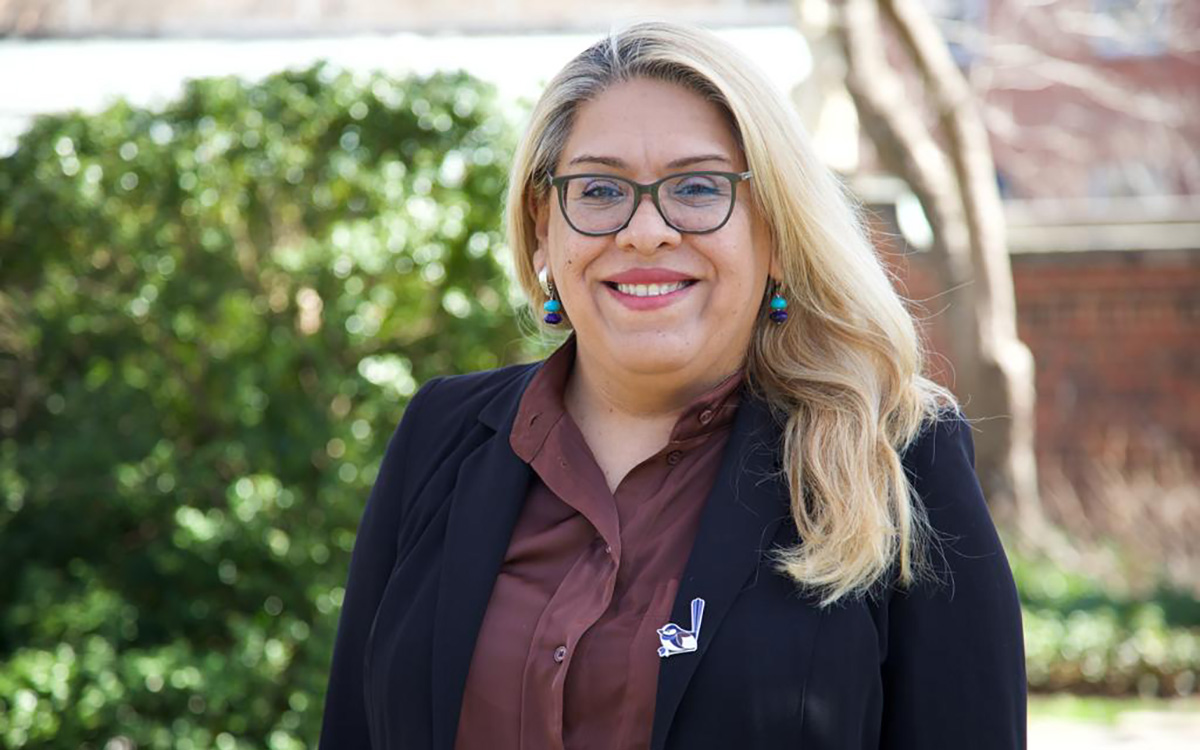
By Esteban Rioseco | BUENOS AIRES, Argentina — Argentina’s former Special Representative on Sexual Orientation and Gender Identity during an exclusive interview with the Washington Blade discussed recent setbacks in LGBTQ+ rights in the country.
Alba Rueda, a Transgender woman who held the position in former President Alberto Fernández’s administration, revealed the challenges and risks faced by the queer community in the South American country in which 57.4 percent of the population lives in poverty, which is the highest rate in 20 years. The Catholic University of Argentina’s Observatory of Social Debt also notes Argentina began 2024 with a 20.6 percent inflation rate; this figure is 254.2 percent from year-to-year.
President Javier Milei took office in December.
“We received a request from our president at the time, Alberto Fernández, that we submit our resignation as part of the team that integrates the presidency,” Rueda told the Washington Blade.
Rueda explained she “resigned on Nov. 28, a few days before, to make it effective on Dec. 10 with the new government and since then, since Milei, the presidency and the chancellor, Daniela Elena Mondino, took office, (her post) was eliminated. It was already foreseeable according to Milei’s statements about closing the offices on gender perspective.”
“Our special representation was closed. My colleagues were redirected to other areas,” Rueda explained. “The person who accompanied me in political terms resigned with me, so the two of us left on Dec. 10, and the rest of the technical staff was relocated within the Foreign Ministry.”
The former ambassador described how the closure of her position and the elimination of the Women, Gender and Diversity Ministry represent a significant setback in the protection of LGBTQ+ rights in Argentina. She stressed that while the country was a pioneer in passing progressive laws for the LGBTQ+ community, the lack of effective implementation and declining government commitment are jeopardizing these advances.
“We argued that it had been a long time since very significant laws were passed in our country and that they had to be translated into national and local public policies,” she explained. “LGBTIQ+ people not only have to be protected formally in the law, but we have to change and modify the living conditions of our community that has experienced discrimination, violence and persecution for many years.”
She added “to change that culture, there needs to be not only a formal framework, but functioning democratic institutions”
“This elimination has a direct affectation to the rights of LGBTIQ+ people,” said Rueda.
The interview revealed how Milei’s government has dismantled institutions and policies designed to protect queer people.
“We created, for example, a program that was the first program at the national level that was an assistance program for Trans people,” Rueda said. “This program of accompaniment for the protection of their rights was in the sub-secretariat and provided economic support and was working on solving all the procedures related to access to education, health, employment, issues related to substantive issues.”
Rueda highlighted that recent political decisions are not only curtailing LGBTQ+ rights, but are also directly affecting the community, especially those who are economically vulnerable. The elimination of assistance programs and lack of legal protections are leaving many LGBTQ+ people in a vulnerable position.
“Economic rights have been affected, as is the inflationary process and the inflationary decisions of this last month are directly affecting the middle class, lower middle class and the most impoverished sectors,” said Rueda. “It directly affects not only economic rights of the LGBTIQ+ population that belongs to these classes, but also affects rights that are not being worked within the framework or promoted within public policies.”
Rueda also raised concerns about a possible increase in violence towards LGBTQ+ people in Argentina, comparable to what has been observed in other countries under hostile political leadership. Rueda stated incidents of violence have already been recorded and that the current political climate is fueling discrimination and hatred towards the LGBTQ+ community.
“It started during the campaign, and I think that during the whole last year we saw how effectively, punctually in social networks and in the public space there was a whole attack on LGBTQ+ people,” she said. “Let’s not forget during the campaign that the main candidates who are the president, the vice president and the chancellor expressed themselves in the wrong way, generating with their ignorance a completely wrong message in the media, amplifying these messages that directly affect the rights of LGBTQ+ people.”
Rueda recalled the vice president “expressed in her campaign that for her it was not necessary to call marriage a union of people of the same sex … that was the civil union and saying that marriage was a figure associated with religious aspects.”
While Milei “in an interview also during the presidential campaign, said that he did not care if people want to have sex with other people of the same sex or with animals, such as elephants, equating and putting on the same level the consensual relations of people of the same sex over 18 as zoophilia.”
The situation has reached the point that different WhatsApp groups created to seek help during the COVID-19 pandemic became active again because of the interruption of the National Social Protection Plan and changes to an employment program that made vulnerable Trans people in Argentina more at-risk.
“We are in a bad moment for the rights and quality of life of LGBTQ+ people,” Rueda said.
******************************************************************************************

Esteban Alonso Enrique Guzmán Rioseco is a Chilean digital communicator, LGBT rights activist and politician. He was spokesperson and executive president of the Homosexual Integration and Liberation Movement (Movilh). He is currently a Latin American correspondent for the Washington Blade newspaper .
On October 22, 2015, together with Vicente Medel, he celebrated the first gay civil union in Chile in the Governorate of Concepción .
South America
Former Chilean President Sebastián Piñera killed in helicopter crash
Previous head of state signed marriage equality, gender identity laws

By Estebán Rioseco | LAGO RANCO, Chile — Former Chilean President Sebastián Piñera died on Tuesday when the helicopter he was piloting crashed near Lake Ranco during heavy rains.
Initial reports indicate Piñera, 74, was piloting his private helicopter when it plunged into the lake, which is located in the Los Ríos Region of southern Chile. One of his sisters was among the three other people who was on board.
The former president owned a summer house on Lake Ranco. Family members and people close to him say he was in the area to have lunch at the home of businessman José Cox, a close friend and associate. Piñera boarded his helicopter after 3 p.m. local time (1 p.m. ET) and the accident occurred a few minutes later.
Reports indicate his relatives managed to survive after they jumped into the water, but Piñera was not able to escape. The helicopter sank in more than 130 feet of water.
Piñera, who was Chile’s president between 2010-2014 and 2018-2022, was the country’s first right-wing president since democracy returned to the country in 1990. Piñera’s government enacted most of Chile’s LGBTQ+ rights laws: The Anti-Discrimination Law in 2012, the Gender Identity Law in 2018 and the Equal Marriage Law in 2021.
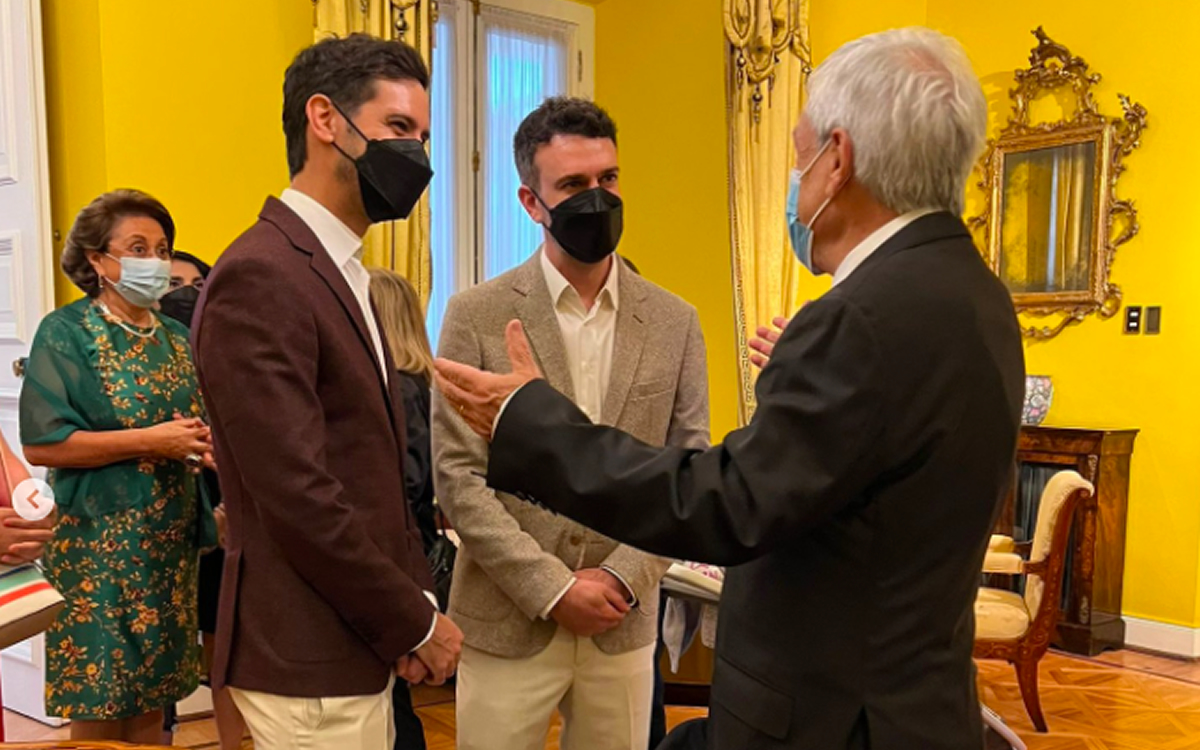
His first administration sent a civil unions bill to Congress, and it became law in 2015. Piñera also implemented public policies that sought to improve queer Chileans’ quality of life.
Javiera Zuñiga, spokesperson for the Movement for Homosexual Integration and Liberation, the main Chilean LGBTQ+ organization known by the acronym Movilh, told the Washington Blade that “our organization is deeply saddened by the death of the former president, who played a crucial, leading and pioneering role for a president in the promotion and defense of the human rights of LGBTIQ+ people, same-sex couples and same-parent families.”
María José Cumplido, executive director of Fundación Iguales, another advocacy group, said “our condolences to the family of former President Sebastián Piñera for his passing.”
“We remember his commitment to the enactment of the Anti-Discrimination Law, the Gender Identity Law and the Consolidation of Equal Marriage, historic achievements for the LGBT+ community in Chile,” said Cumplido.
“I am very sorry for the death of President Piñera,” said Pablo Simonetti, an activist and writer, on his X account. “From the right he opened paths towards the integration of LGBT people and led the great milestone of equal marriage. My condolences to his family and friends, especially to (his wife) Cecilia Morel.”
President Gabriel Boric’s government also mourned Piñera’s death and announced a period of national mourning. A state funeral for Piñera will also take place.
******************************************************************************************

Esteban Alonso Enrique Guzmán Rioseco is a Chilean digital communicator, LGBT rights activist and politician. He was spokesperson and executive president of the Homosexual Integration and Liberation Movement (Movilh). He is currently a Latin American correspondent for the Washington Blade newspaper .
On October 22, 2015, together with Vicente Medel, he celebrated the first gay civil union in Chile in the Governorate of Concepción .
South America
Activists criticize removal of sexual orientation question from Chilean Census
Advocacy group on Jan. 4 wrote letter to President Gabriel Boric

By Esteban Rioseco | SANTIAGO, Chile — Chile’s National Institute of Statistics (INE) in an unexpected move has decided to remove the question regarding sexual orientation from the questionnaire of this year’s Census that will take place between March and June.
The questionnaire, which consists of 50 questions, seeks to collect essential information to update demographic data that is fundamental for the formulation and continuation of public policies. Nationality, disability, native language, Afro-descendance and gender identity are among the new topics to be included in the Census, but activists have criticized the INE’s decision to omit the question about sexual orientation.
“We met with both the deputy technical director and the national director of INE to demand that this question be included,” Maria José Cumplido, executive director of Fundación Iguales, told the Washington Blade. “Unfortunately, the answer they gave us was that due to methodology and privacy protocol, this question could not be included in the Census because, according to their protocols, the question must be asked in a one-on-one interview and the head of household is interviewed for the Census and he or she answers for the family group.”
The activist added “it is also very striking because there are questions about gender identity, for example, if you are trans or nonbinary.”
“In the end, this protocol would not apply, which is very strange because both questions are sensitive,” said Cumplido.
Cumplido said it will not be possible to have useful statistics to help create public policies without the question on sexual orientation.
Congresswoman Emilia Schneider, who is Transgender, on social media also expressed her opposition to the INE’s decision.
She said the inclusion of the LGBTQ+ community in the Census is crucial to combat discrimination through effective public policies. Schneider added the INE — and not the government — is responsible for the decision because it is an autonomous body.
Lawmakers from various political parties have also urged the INE to reconsider its decision. El Movimiento de Integración y Liberación Homosexual (Movilh), another advocacy group, expressed their concern in a letter it sent to President Gabriel Boric on Jan. 4.
The Blade on Thursday obtained a copy of it.
“These exclusions are undoubtedly a civilizational setback for LGBTIQ+ rights,” reads the letter that Movilh President Gonzalo Velásquez signed.
The letter notes 18 laws “that protect sexual orientations, gender identities and expression that especially justify protecting and improving the previous Census’ questions about diversities” have been approved since 2012. One of these laws, which extended marriage rights to same-sex couples in Chile, took effect on March 10, 2022, the day before Boric’s inauguration.
Movilh in its letter notes an agreement it signed with former President Michelle Bachelet’s government and the Inter-American Commission on Human Rights in 2016. Bachelet’s government, as part of the agreement, agreed to introduce bills to extend marriage and adoption rights to same-sex couples. (Movilh in 2020 withdrew from the agreement after it accused then-President Sebastián Piñera of not doing enough to advance marriage equality in Chile. Piñera later announced his support for marriage equality, and the law that allowed same-sex couples to tie the knot took effect the day before he left office.)
“We have been working together with the INE and the Census over the last few years and the official version was going to include questions about sexual and gender diversity,” reads the letter. “Today, however, we learned that this promise will not be fulfilled.”
Movilh spokesperson Javiera Zúñiga told the Blade a government minister has expressed a “willingness” to “meet with us,” but added he “told us that he cannot intervene in technical decisions of INE.”
“Therefore, it does not change the decision, nor the determination to exclude sexual orientation and data on LGBT people in the Census,” said Zúñiga. “What seems to us quite bad and quite unrealistic — since it is necessary for policies to publish (the statistics) — but it is also the State of Chile’s commitment to generate statistics regarding the LGBTQ+ population.”
South America
Rejection of proposed Chilean constitution seen as a victory for LGBTQ+ rights
55.8 percent of voters opposed second draft
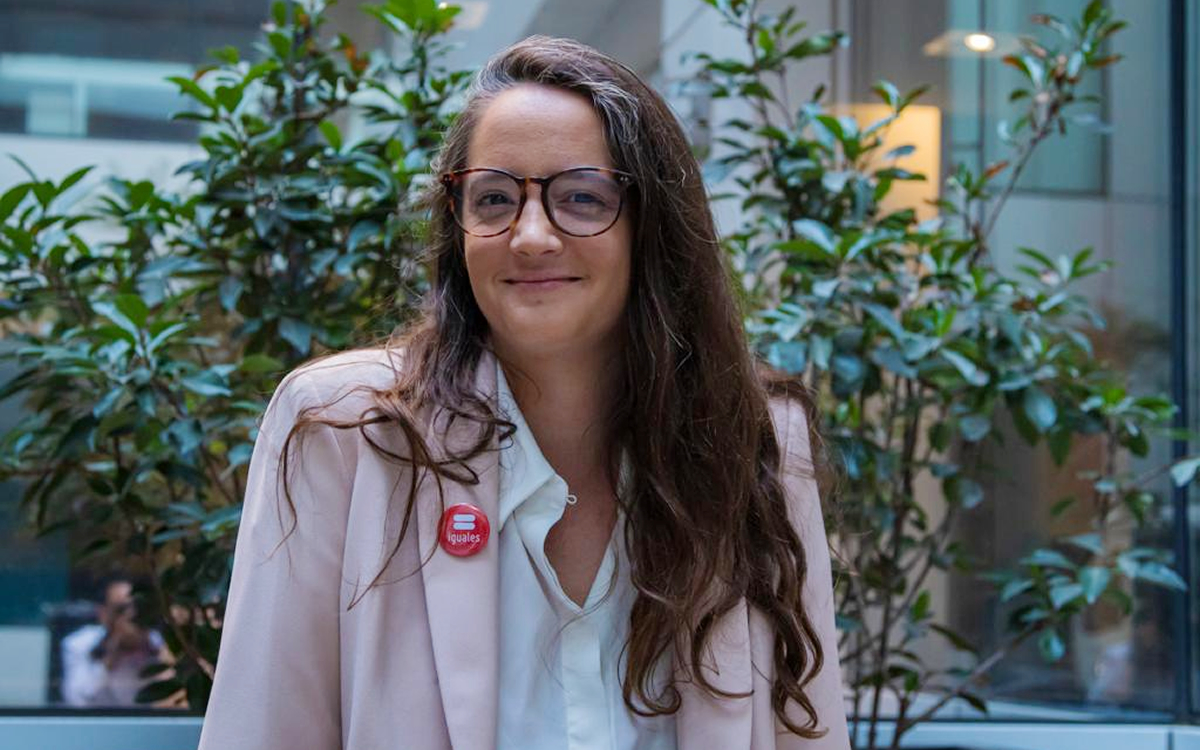
BY ESTEBAN RIOSECO | SANTIAGO, Chile — Chile has experienced a crucial turn in its political landscape with the results of Sunday’s referendum in which voters rejected a proposed constitution that generated concern among LGBTQ+ activists.
Chileans rejected the draft constitution with 55.8 percent of voters supporting the “against” option. Turnout was 84.5 percent.
The Republican Party, founded by the far right-wing former presidential candidate José Antonio Kast, led the effort behind the proposed constitution. Sunday marked the second time that Chileans went to the polls to decide on a new constitution — the process began after social protests rocked the country in October 2019.
A year after the unrest, more than 80 percent of voters were in favor of replacing the constitution, but the first attempt that independents and left wing sectors led, failed in September 2022, when 62 percent of Chileans voted “rejection.”
With the second rejection on Sunday, voters punished the right wing after opposing independents and the left wing. This result ended a cycle of euphoria after the social unrest with a high initial percentage for change. The current constitution, which took effect in 1980 during Augusto Pinochet’s regime and has undergone several changes, remains in force.
María José Cumplido, executive director of Fundación Iguales, expressed relief, noting the proposed constitution posed a significant risk to the rights of women and sexual diversities.
“We are very relieved,” Cumplido told the Washington Blade.
As to how she perceives these results will affect the LGBTQ+ community in terms of rights and protections, Cumplido noted more voters consciously objected to the proposed constitution that could have resulted in constitutionalized discrimination. Cumplido, however, pointed out the 1980 constitution does not ensure real protections against discrimination, which means Fundación Iguales will continue to work in this area.
Cumplido highlighted the broad conscientious objection could allow discrimination on religious grounds. She further noted the lack of a sufficiently robust non-discrimination principle and expressed concerns about the weakness of the rights of children and adolescents.
“Conscientious objection has been used to reopen debates that had already been democratically resolved, usually in relation to specific groups, such as LGBTIQ+ (people), whose rights were only recently recognized and whose implementation is sought to be avoided, even if this significantly affects the holders of those rights,” said Cumplido.
Ignacia Oyarzun, president and coordinator of legislation and public policy of Organizando Trans Diversidades, expressed relief over the referendum’s results. Oyarzun emphasized the proposed constitution would have limited the possibility of advancing Transgender rights.
“It basically boils down to a sense of tranquility,” Oyarzun pointed out to the Blade. “Understanding that for particularly communities like ours, who are socially vulnerable, who have historically been excluded from political, social spaces, it implied the possibility of being able to suffer, let’s say, even more social and political vexations in relation to a constitution guaranteeing certain possibilities of discrimination directly towards our communities.”

Oyarzun affirmed the results guarantee the continuity of the advances in trans rights and for the broader LGBTQ+ community. Oyarzun also pointed out the proposed constitution threatened rights that the Trans community has won, such as the recognition of gender identity.
“It gave the possibility of going backwards in rights that we have already currently managed to achieve, such as for example identity recognition or for example circulars, in this case of Infancia Circular de Educación 0812, which enables the respect of the gender identity of girls and boys (and their ability to) use (their) social name, (their) use of (a) bathroom, (a) uniform,” Oyarzun emphasized. “All this would have been under the possibility of being eventually repealed or even not respected without any type of sanction for the educational establishments.”
Oyarzun added that “then, particularly these results, what guarantees us in a certain way is not to see a backward step basically in the rights we have acquired and to the continuity, let us say, of the advances we have achieved and the possibility of being able to continue advancing in terms of human and protection rights for our communities.”
In relation to the risk posed by conscientious objection and the lack of protection against discrimination for Trans people, Oyarzun highlighted the concern about overt discrimination in educational establishments and stressed it could have led to a worse quality of life and an increase in violence that would directly affecting the life expectancy of Trans people.
South America
Argentina’s new president eliminates Women, Gender & Diversity Ministry
Javier Milei’s decision has sparked concern among LGBTQ activists
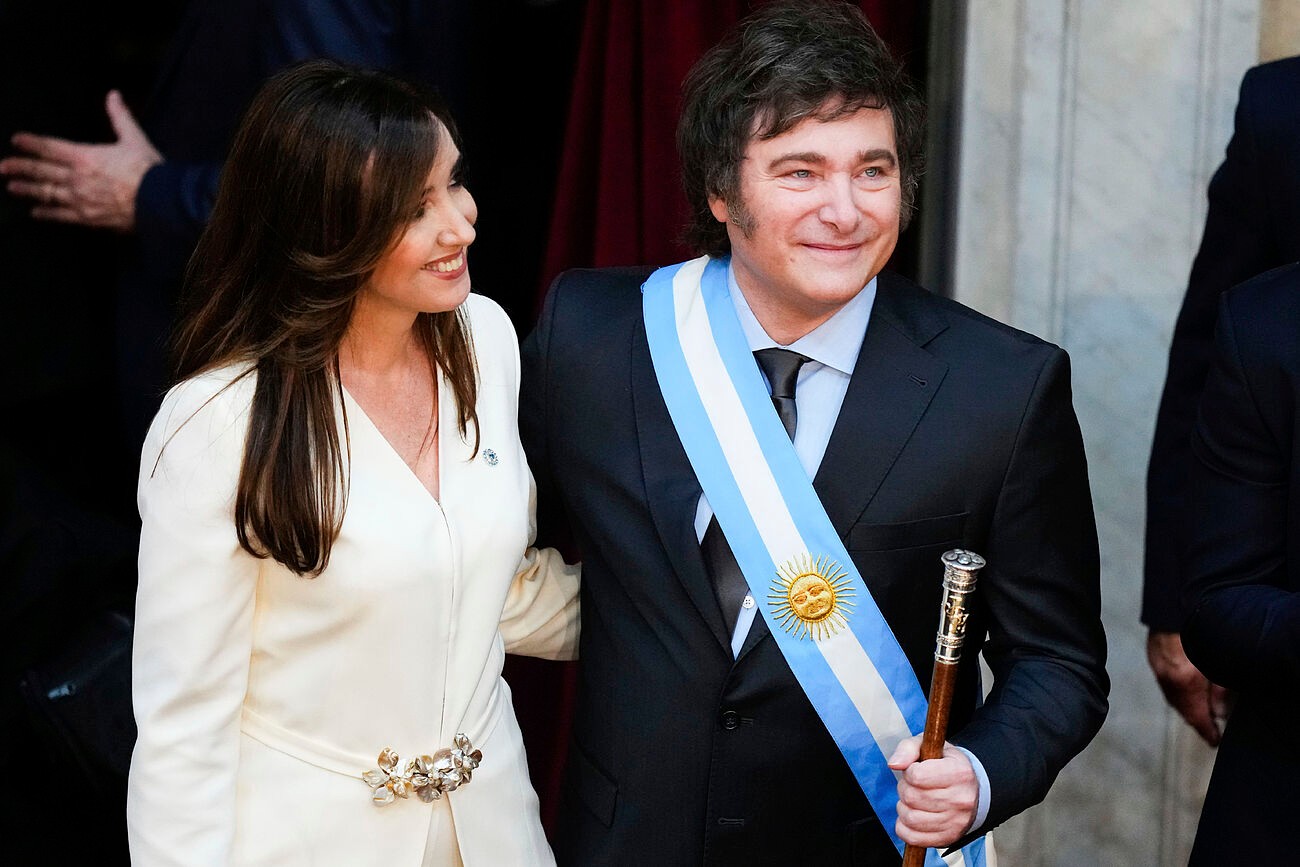
By Esteban Rioseco | BUENOS AIRES, Argentina — Argentinian President Javier Milei has fulfilled one of his campaign promises, which is to eliminate the Women, Gender and Diversity Ministry.
Milei took office on Dec. 10. He defeated then-Economy Minister Sergio Massa in the second round of the country’s presidential election that took place on Nov. 20.
The president’s controversial decision to eliminate the Women, Gender and Diversity Ministry is intended to reconfigure the government structure, placing the portfolio’s responsibilities under the purview of Human Capital Minister Sandra Viviana Pettovello.
The decree mandates “the commitments and obligations assumed by the Ministry of Women, Gender and Diversity will be under the Ministry of Human Capital,” with the transfer of budgetary credits, organizational units, assets and personnel. This reorganization also eliminates the Education, Culture, Labor and Social Development Ministries amid soaring inflation, increased poverty and political and economic instability.
This radical change comes four years after then-President Alberto Fernández in 2019 created the Women, Diversity and Gender Ministry. The resolution, which Milei signed and has already been published in the Official Gazette, has created a new government structure that has raised concerns, especially among LGBTQ+ rights activists in the country that has been at the vanguard of expanding rights to sexual and gender minorities.
New Congressman Esteban Paulón, a long-time activist who represents Santa Fe province, criticized Milei’s decision.
“One of the president’s prerogatives is to dictate his own law of ministries to order the government’s management,” Paulón told the Washington Blade. “Out of 18 existing ministries, it is reduced to nine or 10, and obviously one of the ministries that is eliminated is the Ministry of Women, Gender and Diversity.”
Paulón noted this decision reflects Milei’s view of these issues as “superfluous policy expenditures,” sending a clear message that they will not be a priority for his administration.
“The president decided to make his first speech with his back to Congress, ignoring a Congress that is very fragmented and with which he needs to have a dialogue if he wants to pass some of the laws he is pushing,” said Paulón. “This beginning has not been a good omen in the 40th anniversary of democracy.”
Paulón added this situation “adds a lot of uncertainty and concern.”
The congressman also reiterated his concerns about the future of gender and sexual diversity policies in Argentina.
“It is still not clear in the structure of the State where those jobs that exist today, that are created, will remain. It is not resolved,” said Paulón. “We will have to see how the issue evolves, but for now there is silence on the part of the government in relation to this.”
Paulón further stressed the importance of defending policies that benefit LGBTQ+ people.
He said these policies are not only relevant to LGBTQ+ people; but also apply to the fight against gender violence, femicides, labor and social inclusion of the Transgender community and other inequalities and the implementation of the Trans labor quota. Paulón concluded the loss of institutionalism not only implies the lack of resources from the State, but also the absence of a clear message about the importance of these issues in society.
“This is a huge shame because the truth is that these policies are very necessary, first because we know that there are issues linked to gender inequalities and this obviously includes the perspective of dissidence that have a concrete impact on the daily lives of people, care policies, gender violence, the issue of feminist economy, obviously everything that has to do with labor and social inclusion of the LGBTIQ+ collective,” he said.
“These are extremely relevant issues that are lost when losing institutionality because the State stops allocating resources, stops investing and above all stops sending a clear message to society that these are relevant issues,” added Paulón. “They are issues that the State has to deal with and society has to commit to modify, and the truth is that if we do not fight against the structure of patriarchy that is so settled in capitalism, we will not be able to fight against so many other inequalities.”
******************************************************************************************

Esteban Alonso Enrique Guzmán Rioseco is a Chilean digital communicator, LGBT rights activist and politician. He was spokesperson and executive president of the Homosexual Integration and Liberation Movement (Movilh). He is currently a Latin American correspondent for the Washington Blade newspaper .
On October 22, 2015, together with Vicente Medel, he celebrated the first gay civil union in Chile in the Governorate of Concepción .
-

 Political commentary & analysis3 days ago
Political commentary & analysis3 days agoThe Cass Review heralds how all trans medicine will die
-

 West Hollywood4 days ago
West Hollywood4 days agoOut stylist found beaten outside Heart WeHo nightclub recovering
-

 Sports2 days ago
Sports2 days agoWNBA star Brittney Griner & wife Cherelle expecting first child
-

 Political commentary & analysis3 days ago
Political commentary & analysis3 days agoEU elections, empowering queer women & need for safe spaces
-

 North Carolina4 days ago
North Carolina4 days ago“Rainbow Story Time” gets bomb threat, closes Durham N.C. library
-

 West Hollywood22 hours ago
West Hollywood22 hours agoFamily demanding answers in beating of gay hair stylist in WeHo
-

 Los Angeles3 days ago
Los Angeles3 days agoLA leaders call for unity & protection for trans community
-

 Travel4 days ago
Travel4 days agoHot fun in the desert sun: Your Palm Springs guide
-

 West Hollywood2 days ago
West Hollywood2 days agoWeHo City Council Votes to affirm minimum wage of $19.08
-

 Books4 days ago
Books4 days agoNew book offers observations on race, beauty, love

